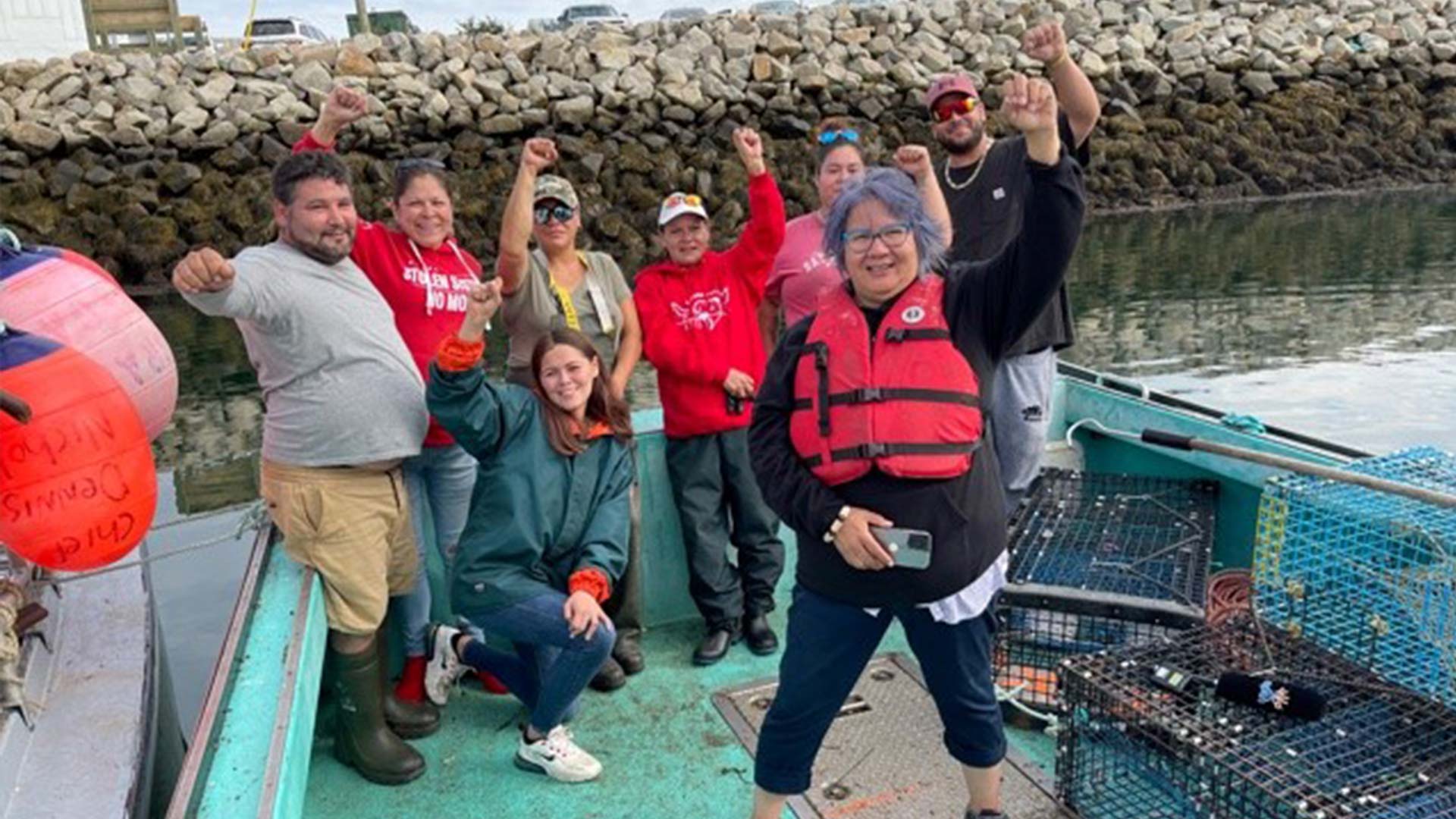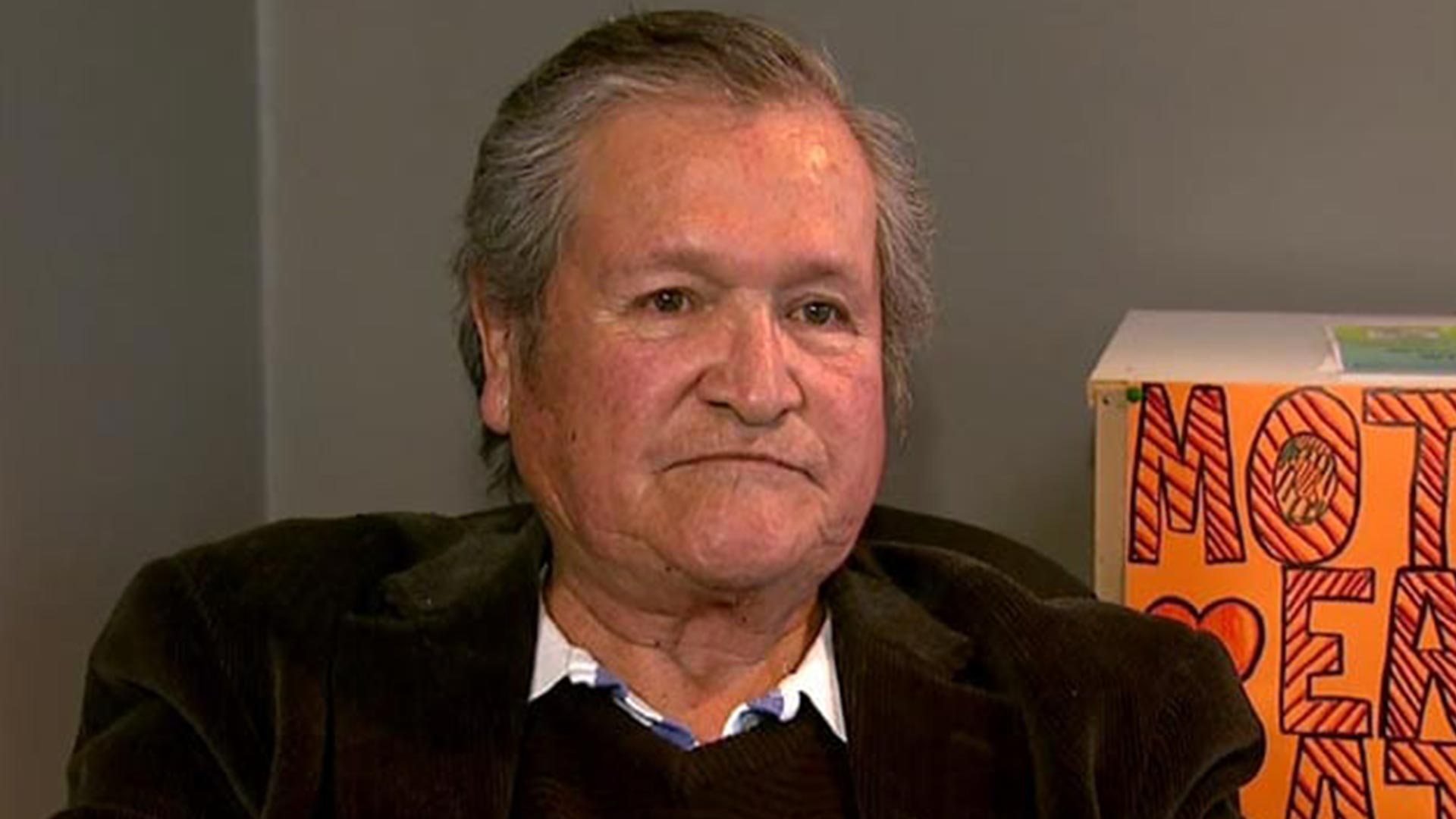RoseAnne Archibald hit the ground running after becoming Assembly of First Nations national chief in July—from the frontlines of the lobster wars in Nova Scotia to ground zero for the finding of unmarked graves in British Columbia.
It’s a bid to build grassroots support for an organization long accused of being irrelevant and cozying up to colonial governments, Archibald explains on the latest episode of Nation to Nation.
“We have to become a relevant organization, we have to get in touch with people, and we have to be connected to people. And so that’s my work as national chief,” she says. “This is why I’m going to communities—because I want them to know that I am here as national chief to support them in their work.”

She was surrounded by federal fishery officers last month while showing solidarity with Mi’kmaw treaty harvesters. This week she sat next to the prime minister as he apologized again for vacationing in Tofino, B.C., instead of visiting the former Kamloops residential school.
Archibald is the first woman to take the AFN’s reins. The organization was roiled by misconduct allegations, external investigations and internal strife when she did. Archibald herself was the focus of a probe into bullying allegations. Three months later, she tells N2N those struggles have been dealt with.
“Those investigations have concluded,” she says. “Those have been accepted by the AFN executive committee. There were motions passed on this. So those things are in the past.”
N2N spoke with former national chief Del Riley on Oct. 14. He created the modern AFN in 1982 by bringing in the chiefs. Prior to that, he said, it was an organization of organizations. Forty years later, it’s changed little.

Archibald said she’s well aware of the criticisms and, alongside holding the Liberal government’s feet to the fire, plans to prioritize internal reform. She said she’s working to separate AFN’s political and administrative wings to avoid internal troubles moving forward.
“The real work ahead is making sure that the organization does address these criticisms,” she says. “Criticisms are really meant to make us better.”
Her policy document, The Healing Path Forward, lays out five priorities. Top among them is justice for victims of residential schools, which she prefers to call “former institutions of assimilation and genocide.”
A visit to the Vatican is also in the works. While Archibald isn’t going, she said Northwest Territories Regional Chief Norman Yakeleya is.
She said work is also underway to establish an AFN council for two-spirit and gender-diverse people.
Rookie MPs gearing up for Parliament to resume
Meanwhile, the House of Commons resumes sitting on Nov. 22, and it’ll have some fresh faces when it does. Rookie New Democrat MPs Blake Desjarlais and Lori Idlout will be among them.
Trudeau will unveil his cabinet on Oct. 26, which has some folks wondering whether Carolyn Bennett, Dan Vandal and Marc Miller will return to their posts at Crown-Indigenous Relations, Northern Affairs and Indigenous Services.
A few weeks ago Desjarlais and Idlout’s NDP colleague Charlie Angus urged Trudeau to give Bennett the boot, and Desjarlais agrees.
“It is warranted to ask for a different cabinet minister in that role, some one that’s going to look at that ministry of Crown-Indigenous Relations with a fresh new set of eyes,” he says.
Hailing from Fishing Lake Métis Settlement on Treaty 6 land in Alberta, Desjarlais became the province’s only Indigenous MP when he beat the Conservative incumbent in a tight race in Edmonton Griesbach.
He says the Liberals have broken too many promises for no one to be held accountable.

“Look at the track record—and Marc Miller is included in this. We still don’t have the ending of every boil water advisory in Canada. That was something that was promised and broken. You can’t promise something like clean water and not deliver it. That strikes a deep chord of mistrust with Indigenous communities who’ve been told these things before,” he says.
“Reconciliation is going to be a very difficult and long journey for all of us. But it’s going to take sacrifices and changes by the Liberals to make sure that we can actually achieve those ends.”
Idlout is Inuk, a lawyer, business owner, community leader and advocate. She kept the riding of Nunavut orange after incumbent Mumilaaq Qaqqaq opted not to run again.
At more than three times the size of France, Nunavut is the largest riding in Canada, yet it has only one member in the House of Commons.
Idlout says she plans to focus on the territory’s strong suits to get results for her constituents.
“Most times we’re talking about the negative social indicators: low education rates, poor health conditions,” she says. “I’d like to shift that conversation so that we’re focusing on the strengths.”
Parliament Hill hasn’t always proved welcoming for Indigenous members. It is, after all, a colonial space. Idlout says she’s experienced racism in her life before. She’s prepared, if needed, to deal with it again.
“I’ve been dealing with a colonial system since I was born,” she says. “I have a list of elders’ phone numbers whom I can call upon. They’ve given me permission to call them whenever I need to, not just for emotional support but for guidance so that I can make sure that I’m always doing what I was elected for—which was to represent Nunavummiut.”
Watch all three interviews above.












